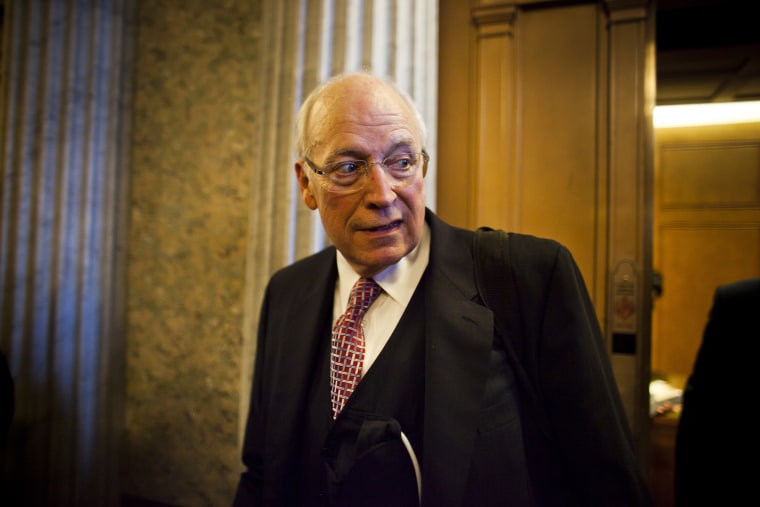Those hoping to kill the international nuclear agreement with Iran have faced a variety of obstacles, but one in particular has proven hard to overcome: their own track record.
Just as there are a variety of Republicans and their allies pushing for an armed confrontation with Iran now, many of these same people were cheerleaders for the invasion of Iraq 13 years ago. Indeed, many have tried to find even one person who was right about Iraq in 2002 and 2003 who also now opposes the diplomatic solution with Iran. So far, no names have popped up.
But as MSNBC's Zack Roth reported, Dick Cheney doesn't much care. The failed former vice president has a new book in which he not only condemns President Obama's foreign policy, but he tries to defend his own tarnished legacy -- especially on the subject of Iraq.
At one stage, [Dick and Liz Cheney] write that "history will be the ultimate judge of our decision to liberate Iraq." But just two pages later, as if unable to resist re-engaging the issue, they describe the late Iraqi president Saddam Hussein as a "grave threat to the United States" before concluding: "We were right to invade and remove him from power." They even insist that U.S. troops "were in fact greeted as liberators," just as Dick Cheney predicted before the invasion -- a quote that Bush administration critics have frequently hung around his neck.
Cheney, promoting the book, was asked yesterday why anyone should listen to him on Iran given his record on Iraq. "Because I was right about Iraq," Cheney responded.
Like it or not, there's ample reason to believe such transparent nonsense actually matters.
For one thing, it helps crystallize the debate over U.S. policy towards Iran. Though Cheney has never been especially comfortable with the facts, reality tells us that the far-right V.P. strengthened Iran's hand tremendously. Cheney was, by some measures, "the greatest thing that happened to the radical regime in Iran since it took power."
It's against this backdrop that the Republican pretends to have great credibility. Cheney believes his disastrous war in Iraq was a success and his failed approach towards Iran is unimportant. The question for current lawmakers, weighing whether to destroy international diplomacy and push the nation closer to another Middle Eastern war, is simple: do you think Cheney's right or not?
As for why anyone, anywhere, would give a darn what Cheney thinks about any subject, the answer is that he remains an influential figure in Republican politics. As we talked about a few months ago, Cheney has positioned himself as a key figure on the GOP fundraising circuit, and he's become a policy adviser to congressional Republicans.
Reality may suggest that Cheney is a ridiculous figure, unworthy of the nation's time, but so long as the Republican Party considers him and his worldview important, it's worth appreciating just how incredibly, shamelessly wrong he is.
